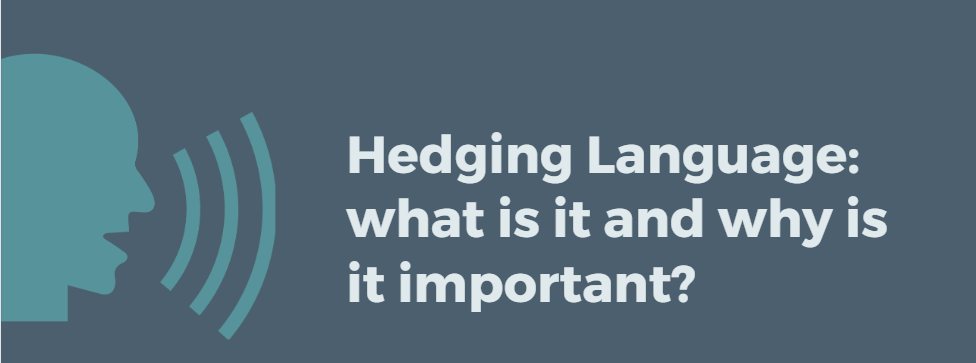Hedging Language- what is it and why is it important?

When discussing your results, it is always important to discuss those results in context. This means talking about how the results apply to other situations and previous literature/studies. What is important about this step is that the researcher does not under or overgeneralize the findings. To do this, a researcher should use what is known as hedging language throughout their paper.
Hedging language is the idea of using cautious or vague language when discussing the implications of results. When talking about results, no matter what they are, they do not “prove” anything. Instead, the researcher is attempting to learn more about a larger population from a smaller sample, meaning that they often make guesses based on that sample. Additionally, research is an ever-changing process. What we know today could change tomorrow with a revolutionary new study published. It is important for a researcher to keep this in mind when discussing results.
Here are some examples of hedging language:
- Instead of “the results prove that…”- maybe use “the results suggest that…” or “the results indicate that…”
- Use words such as “probably”, “could”, or “might”, instead of words such as “definitely”, “does”, or “will”
- Other hedging words/phrases: appear to be, looks like, assume, one possible explanation is…, etc…
Finally, it is important to note that the only section of a research paper in which hedging language should not be used is Chapter 4- the results. This is because, in chapter 4, the researcher should just be reporting the data. Any interpretation of the results, however, should always include hedging language.

We work with graduate students every day and know what it takes to get your research approved.
- Address committee feedback
- Roadmap to completion
- Understand your needs and timeframe